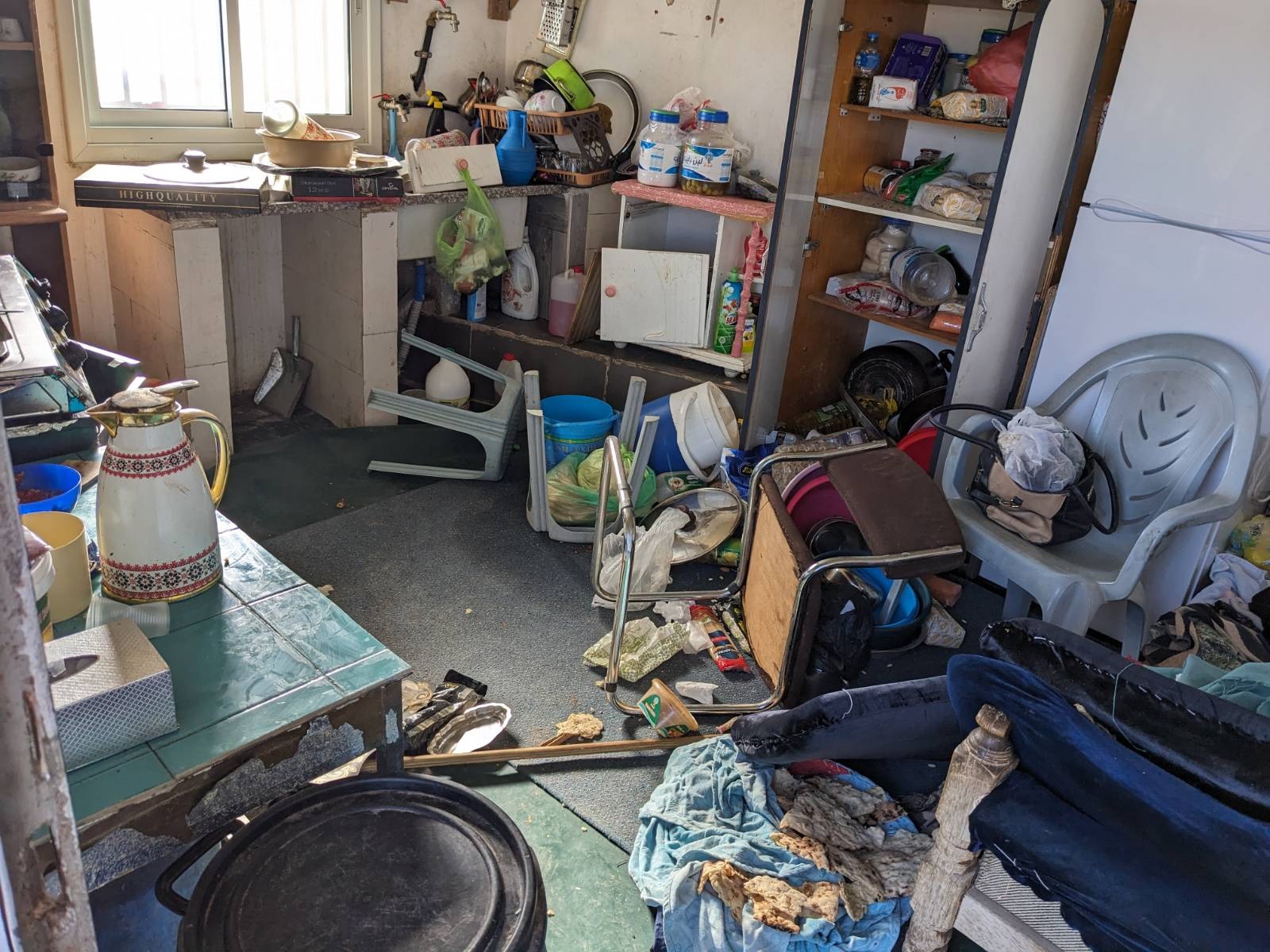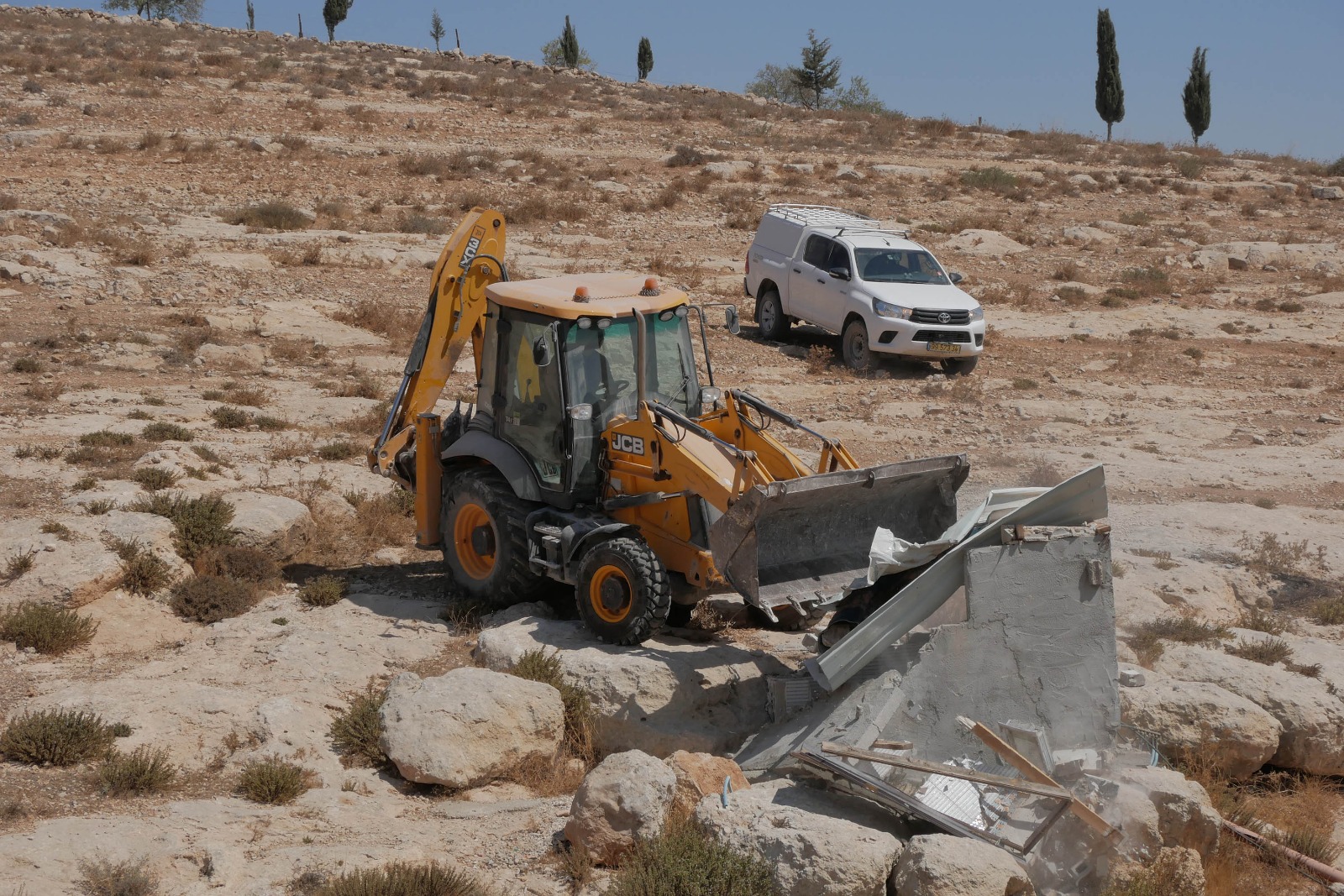Tag: Khallet Ad-Dabe’a
-
Israeli settlers/soldiers abduct a Palestinian, destroy and steal property in Khallet Al-Dabaa
8 December 2023 | International Solidarity Movement | Masafer Yatta, Occupied West Bank In the morning of December 8th, around 50 soldiers/settlers, most of whom wore masks, invaded the Palestinian village of Khallet Al-Dabaa, in Masafer Yatta, and violently attacked 5 people. The aggressors abducted Salah, a Palestinian man, father of 4 young children. They…
-
Israeli apartheid in Masafer Yatta: raids, demolitions, arrests and beatings
Beginning with invasive night raids on multiple villages, and ending with 7 structures demolished, 4 families made homeless, 2 Palestinians arrested, 1 beaten and hospitalized, 1 car confiscated, and 1 road severely damaged, Israeli Occupation Forces continue their ongoing assault on local communities in Masafer Yatta.


